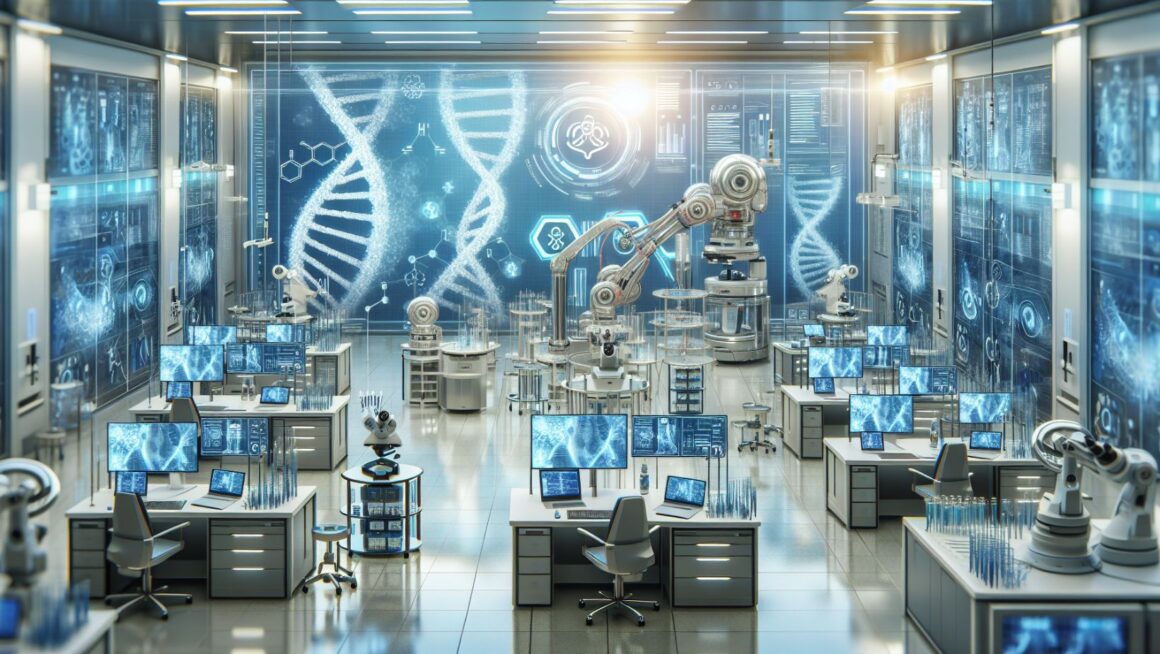Biotechnology is at the forefront of a healthcare revolution, bringing groundbreaking advancements and innovations. It bridges the gap between biology and technology, creating new opportunities for medical research and treatment. Discover how these innovations are reshaping the future of healthcare.
In recent years, biotechnology has become a pivotal force in transforming healthcare. By leveraging biological systems and organisms, it paves the way for new diagnostics, treatments and therapies that were once deemed impossible. As you delve into biotechnology, you’ll find a myriad of applications that are revolutionizing how we approach health and medicine.
Innovations in Medical Treatments
One of the most remarkable impacts of biotechnology in healthcare is the development of new medical treatments. Advances in genetic engineering have enabled scientists to create targeted therapies that address specific genetic mutations. These personalized treatments offer more effective solutions with fewer side effects compared to traditional methods. For instance, lab spaces for biotech research have become crucial in fostering these developments, providing the necessary environment for groundbreaking experiments.
Furthermore, stem cell research has opened up possibilities for regenerative medicine, where damaged tissues and organs can be repaired or replaced. This has significant implications for conditions such as spinal cord injuries, heart disease and diabetes. The ability to grow cells, tissues and even organs in a lab setting promises to change the landscape of medical treatments.
Custom antibody production has also emerged as a critical tool in modern healthcare. These tailored antibodies are used to develop precise treatments for diseases such as cancer and autoimmune disorders, offering a higher degree of specificity and effectiveness.
Another exciting area where biotechnology is making significant strides is in the field of immunotherapy. By harnessing the power of the body’s own immune system, researchers are developing innovative treatments for various types of cancer and autoimmune disorders. CAR-T cell therapy, for instance, involves genetically modifying a patient’s T cells to target and destroy cancer cells more effectively.

This personalized approach has shown remarkable results in treating certain blood cancers and is being explored for solid tumors as well. As biotechnology continues to advance, we can expect to see more groundbreaking immunotherapies that offer hope for patients with previously untreatable conditions.
Advancements in Diagnostics
Biotechnology is also making waves in the field of diagnostics. Traditional diagnostic methods often involve invasive procedures or long waiting times for results. However, with biotech advancements, quicker and more accurate diagnostic tools have become available. For example, next-generation sequencing allows for rapid analysis of genetic material, aiding in the early detection and prevention of diseases.
This shift toward precision medicine means that healthcare professionals can tailor their approaches based on individual patient profiles. This personalized approach not only improves patient outcomes but also reduces unnecessary treatments and associated costs. By identifying genetic predispositions to certain diseases early on, preventative measures can be implemented more effectively.
Impact on Drug Development
The drug development process has also been significantly enhanced by biotechnology. Traditional drug discovery methods are often time-consuming and expensive. However, biotechnological techniques such as high-throughput screening and bioinformatics have streamlined this process. These methods allow researchers to quickly identify promising compounds and predict their efficacy through computer simulations before moving on to clinical trials. By incorporating patient level insights, researchers can streamline their studies to be more responsive to patient needs and experiences. This approach not only helps in designing more successful studies but also enhances clinical trial experiences by integrating direct feedback from patients.

Additionally, biopharmaceuticals – drugs produced using living organisms – are becoming more prevalent. These drugs offer targeted treatments for diseases such as cancer and autoimmune disorders with greater precision than conventional pharmaceuticals.
As biopharma production scales, the need for robust, efficient processes, including reliable effluent decontamination and biowaste treatment systems, becomes critical to ensure compliance, safety, and environmental sustainability. The combination of these technologies not only accelerates drug development but also improves the overall success rate of new medications reaching the market.
Summing Up: The Future of Healthcare
As biotechnology continues to evolve, its influence on healthcare will only grow stronger. Emerging fields like synthetic biology hold immense potential for creating entirely new biological systems that can perform specific tasks within the human body. This could lead to revolutionary treatments for a wide range of ailments.
What’s more, the integration of artificial intelligence with biotechnology offers exciting possibilities. AI algorithms can analyze vast amounts of data generated by biotech research to uncover hidden patterns and insights. This synergy between AI and biotech could lead to even more precise diagnostics and innovative treatments.
Ultimately, understanding these advancements in biotechnology is crucial for staying informed about the future of healthcare. Whether it’s through new medical treatments, advanced diagnostics or accelerated drug development processes, biotechnology is undeniably building a healthier tomorrow.

